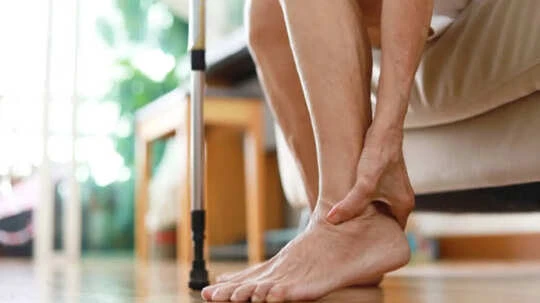Pain in the ankles sometimes may be due to a twisted foot or too much standing. However, if it becomes chronic, experts say it could be a sign of two life-threatening conditions – fatty liver disease or heart failure.
Also known as edema, ankle swelling can also occur when hot and humid weather, like the rainy season, causes blood vessels to expand naturally. However, if it happens for a long time, the condition, doctors say, indicates something far more concerning.
Edema shows up as swollen or puffy ankles, feet, or legs – along with tight or glossy skin – which leads to severe pain, rigidity, and marks when the skin is pressed.
How does edema cause fatty liver disease?
Fatty liver disease happens when there is an excess fat buildup in your liver, stemming either from heavy alcohol use or occurring in those who do not even consume alcohol. The condition involves fat, inflammation, and liver damage that causes cirrhosis – a life-threatening disease.
Doctors say edema occurs due to increased pressure from portal hypertension, which is caused by liver damage associated with fatty liver disease. This pressure buildup leads to fluid accumulation in the surrounding tissues, resulting in swelling.
Other signs of fatty liver disease also encompass a dull or throbbing discomfort in the upper right portion of the abdomen – above the lower right ribs – severe tiredness and fatigue, unexplained loss of weight, and general weakness.
Edema and heart failure
Heart failure is a kind of cardiovascular condition that occurs when your heart is not able to pump blood properly and effectively around the body, mostly because it has become too rigid or weakened. Doctors say apart from chest discomfort and breathing difficulties – the commonly linked symptoms of cardiac issues – swelling in the legs, feet, and ankles could also signal heart failure.
It happens when congestive heart failure leads to one or both of the heart’s lower chambers to stop pumping blood well. Due to this, blood backs up in the legs, ankles, and feet, causing edema.
Other common signs of heart failure include:
Shortness of breath
Breathlessness, which happens either post-physical activity or even during rest, and intensifies when you lie down or if you find yourself abruptly waking up in the night, gasping for air
Exhaustion
Many people may feel perpetually tired and find physical exertion extremely exhausting.
Feeling dizzy
There can be spells of dizziness or fainting.
How to reduce swelling?
Apart from treating the underlying cause of edema – heart failure or liver disease – there are a few steps you can take to keep fluid from building up in your body:
- When you are sitting or lying down, put a pillow under your legs to keep them elevated above the level of your heart.
- Do not sit or stand for long periods without moving, or go on short walks.
- Wear support socks, stockings, or sleeves, which put pressure on parts of your body to keep fluids from collecting there.
- Reduce salt consumption in your diet.
